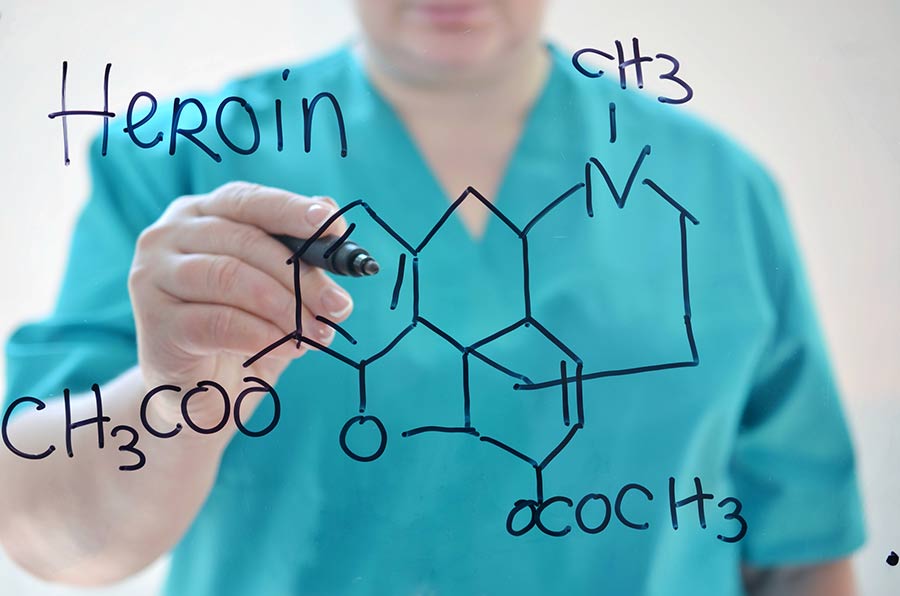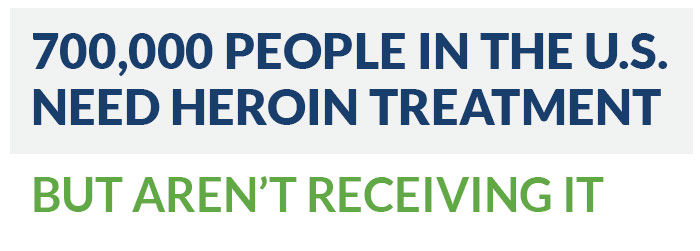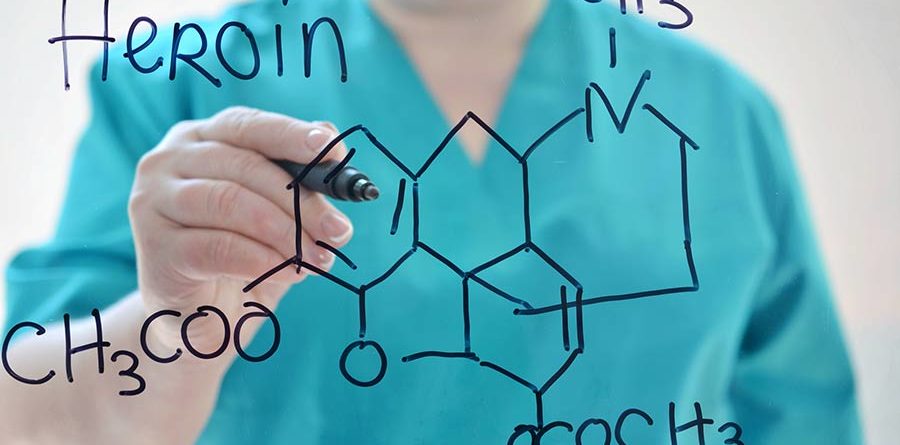Heroin Recovery

HEROIN STATISTICAL OVERVIEW

In 2015, Johns Hopkins University School of Medicine published a study proving the efficacy of pharmacological therapy in preventing heroin use. Further studies by the Substance Abuse and Mental Health Services Administration (SAMHSA) report that completion rates associated with outpatient treatment programs are approximately 35 percent and residential programs as high as 65 percent, contradicting the popular, disheartening myth that heroin recovery is “almost impossible.”
COMMON OBSTACLES TO SOBRIETY
Heroin is a notoriously deadly and difficult-to-treat opiate, and users must be fully prepared to overcome common obstacles in early recovery. Navigating the following roadblocks to success is an integral part of recovery:
- Heightened withdrawal symptoms – Even casual recreational users can and will experience significant heroin withdrawal symptoms. Especially with severe or prolonged use, or when a user inadvisably attempts to quit cold turkey, these same symptoms can take a debilitating turn and, in some cases, prove deadly.
- Unrealistic expectations – Heroin users may wrongly associate relapse with treatment failure. This incorrect assumption is best corrected by having realistic expectations prior to beginning treatment— including the knowledge that relapse is a common part of the recovery process and does not constitute failure in any way. Especially considering heroin’s potency, relapse is considered an expected part of long-term treatment.
- Co-Occurring Disorders: Underlying emotional and psychological issues – Regardless of how internally and externally motivated someone may be toward recovery, failure to address underlying emotional and psychological problems may result in relapse and sabotage the treatment process. Heroin addiction frequently occurs in tandem with anxiety and depression-related disorders or unresolved trauma. Awareness of these issues, and more importantly, self-honesty, helps prevent them from interfering with successful treatment. Additionally, look for rehab with a dual diagnosis program and clinical staff who are trained in treating co-occurring disorders.
- The myth of willpower – Addiction involves pathological changes to brain chemistry coupled with serious physical and psychological damage. Therefore, willpower alone is insufficient to overcome this opioid addiction. Optimal recovery requires multiple layers of social and psychological support in addition to evidence-based therapeutic and pharmacological interventions.
- Convenience-oriented treatment – Users may assume that entering a month-long intensive inpatient treatment program followed by several months of outpatient treatment is sufficient to overcome their addiction. Unfortunately, this idealistic and unfounded assumption sets the stage for early relapse. Treatment for heroin addiction is a long and arduous process that can last for years and, in some cases, requires permanent treatment.
IMPROVING YOUR CHANCES
The most effective approach to heroin treatment is based on an empirically proven strategy that involves mandatory inpatient detox plus concurrent pharmacological intervention. This popular heroin treatment, commonly referred to as medication-assisted treatment (MAT), provides a solid foundation for evidence-based recovery. MAT is implemented only after a comprehensive medical and psychiatric evaluation by a team of licensed professionals using a variety of trusted tools such as the Clinical Opiate Withdrawal Scale (COWS). MAT may include the following medications in addition to whatever supplemental medications are necessary to treat co-occurring anxiety and depression-related disorders:
- Suboxone – Used early in symptom onset, this combination of buprenorphine and naloxone (an opiate antagonist) is frequently used to help prevent intravenous buprenorphine abuse. This clinically proven medication for heroin dependence significantly lowers the risk of precipitated withdrawal. Suboxone activates the same neurological receptors as heroin and is generally well-tolerated.
- Vivitrol – An injectable prescription variety of naltrexone that helps control cravings and stabilize psychological and physiological processes. The drug is available in both pill and once-per-month injectable form and works by blocking opiate receptors in the brain, noticeably diminishing the euphoric effects associated with heroin.
- Methadone – Used for over 25 years to treat heroin addiction, its use is highly regulated and based upon strict medical authorization and need. Because of its association with high rates of abuse, the drug is controversial in treating opiate addiction.
SEEKING HELP
If you or someone you love is struggling with heroin addiction, call a substance abuse professional or a treatment center today. Heroin addiction is a chronic, relapsing condition that requires aggressive, evidence-based treatment as early as possible in order to be effective. Delaying treatment is never advisable and leads to a multitude of unnecessary risks and complications. Treatment delayed is often treatment lost, and time is a luxury you just can’t afford.
For more about heroin addiction and recovery, check out these related articles:
- The Real Cost of Addiction
- Alternative Methods for Managing Pain without Opiates
- Is There a Cure for Addiction?
- The Science of Drug Addiction
Sources:
The Pharmaceutical Journal. Heroin abuse: breaking the cycle. Jun, 2015.
American Journal of Preventative Medicine. Geographic Variation in Opioid and Heroin Involved Drug Poisoning Mortality Rates. Dec, 2017.
Journal of Urban Health. Heroin overdose: Research and evidence-based intervention. Jun, 2003.
Journal of Addictive Behaviors. Increased use of heroin as an initiating opioid of abuse. Nov, 2017.
North Carolina Medical Journal (NCMJ). Heroin and Fentanyl Trafficking Trends. May, 2018.
Harm Reduction Journal. Policy makers ignoring science and scientists ignoring policy: the medical and ethical challenges of heroin treatment. April, 2006.


